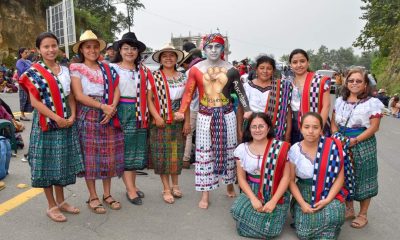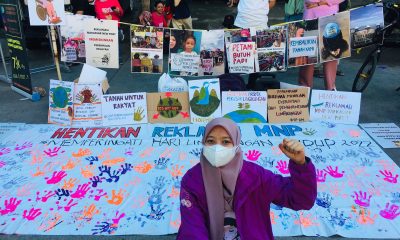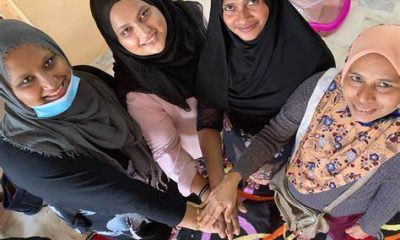By Laura Carlsen Km. 148 is a nodal point on the Interamerican Highway that connects…
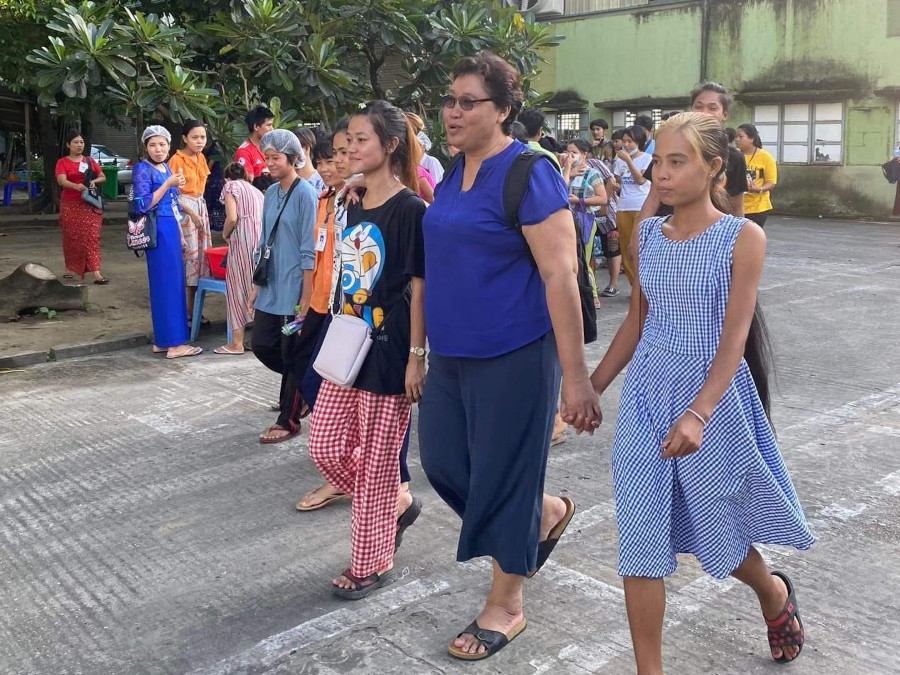
On April 15, 2021, Myo Myo Aye, a prominent labour rights activist, was taken from her office and taken to a police station for interrogation before being transferred to Insein prison, known for its inhumane conditions and human rights violations. She was arrested and spent six months in jail, with much of that time in solitary confinement and without access to her family, doctor, or lawyer. During her time in prison, Myo Myo witnessed the suffering of women, including torture and sexual violence, which deeply impacted her.
“There were times during my imprisonment when I felt discouraged. But when I saw women – young and old – continuing to fight for their rights, even though their bodies were violated, I felt the need to be strong,” recounts Myo Myo.
The situation in Myanmar two years after the military coup remains challenging. Speaking out is dangerous and has resulted in thousands of arrests and deaths. The persecution of pro-democracy leaders and rights activists has only increased, forcing many to go into hiding or flee for their safety and the safety of their families.
But activists like Myo Myo have not resigned. “Women are still losing their rights,” she says, “We have to keep fighting relentlessly.”
Championing women’s labor rights
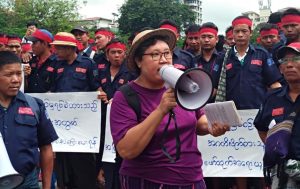 Myo Myo Aye is a tireless labour rights activist in Myanmar who founded the Solidarity Trade Union of Myanmar (STUM) in 2016, an organisation dedicated to protecting the rights of workers, including the right to associate and express themselves freely. Over the years, Myo Myo has been a champion for workers’ rights in Myanmar and has participated in JASS’ regional leadership schools and convenings.
Myo Myo Aye is a tireless labour rights activist in Myanmar who founded the Solidarity Trade Union of Myanmar (STUM) in 2016, an organisation dedicated to protecting the rights of workers, including the right to associate and express themselves freely. Over the years, Myo Myo has been a champion for workers’ rights in Myanmar and has participated in JASS’ regional leadership schools and convenings.
“I became an activist because of what I saw in my environment. I live in the industrial zone area. I see women workers every day. The women workers back then did not know their rights. They did not have access to the information. I resolved to not remain blind anymore. I became a rights defender and started organising fellow garment workers,” says Myo Myo.
Organising in a repressive context
Before the pandemic, STUM had a membership of 17,000 spread across Yangon, Mandalay, and Irrawaddy regions. However, the current repressive climate in Myanmar makes it challenging for STUM to effectively engage and support all its members. Gatherings and meetings are prohibited, putting union leaders at risk of arrest if they convene. To continue their efforts, STUM has adopted creative and safer approaches to organising such as holding discussions with workers within the factories where they are employed, to address labour issues and collectively strategise.
“One of the limitations in organising is the prohibition of gatherings. It is difficult for us to meet and discuss. We will be dispersed or arrested immediately if we do. Right now, we get to talk to the workers only when there are labor issues in the factories. We visit them there and plan collective actions inside the factories,” added Myo Myo.
STUM also utilised creative communications to raise awareness about women and workers’ rights. In 2022, with support from JASS, STUM created 18 short videos in Burmese with English subtitles for wider reach. The videos provided a deeper understanding of the political context and spotlighted the vital role played by women workers and women defenders in the larger pro-democracy movement. The robust promotion of the videos helped garner solidarity and support. The videos also aimed to both exert pressure on employers and brand companies that violate workers’ rights and support workers and unions in developing effective engagement and advocacy strategies.
“This is one of the successful stories we had in 2022. With the videos translated in two languages – human rights and workers’ rights organisations were able to understand our campaign on Myanmar workers’ rights. They took action as a result. We were also able to get our message across the Japanese brand that has local factories in Myanmar,” says Myo Myo.
Putting pressure on regional and international human rights agencies has been another strategy used to mobilise urgent action. In October 2022, JASS Southeast Asia joined 457 other civil society organisations from Myanmar, the region, and worldwide in issuing a statement to the leaders of the Association of Southeast Asian Nations (ASEAN). The statement demanded the exclusion of all representatives of the Myanmar military junta, both political and non-political, from all ASEAN summits and meetings.
Building the next generation of leaders
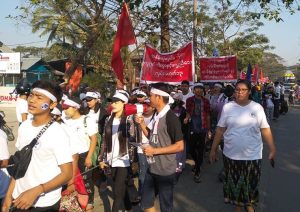 Another strand of STUM’s work in 2022 was the training of young women. Despite forming the majority of workers in the garment sector, women’s leadership and decision-making in labour unions and federations in Myanmar are largely dominated by men. Myo Myo Aye, a former garment worker, recognises the need for the voices of women to be heard.
Another strand of STUM’s work in 2022 was the training of young women. Despite forming the majority of workers in the garment sector, women’s leadership and decision-making in labour unions and federations in Myanmar are largely dominated by men. Myo Myo Aye, a former garment worker, recognises the need for the voices of women to be heard.
“Right after the coup, we were unable to provide capacity building to union members. Given the risky and difficult situation, we asked ourselves, ‘Who is going to lead the trade unions now?’ The provincial leaders are the next-in-line leaders of STUM. In 2022, we were able to regroup and provide training as much as the situation allowed. If I get jailed again, or worse, murdered – I know that the next generation of union leaders and members will continue the work of STUM,” explains Myo Myo.
Undeterred
As she looks to the future, Myo Myo believes that the people’s resistance against the junta will succeed only through persistent organising and the courage of the people to stand up for their rights and beliefs. “We cannot be afraid of dying or being sent to prison. We cannot just turn a blind eye to the injustice and oppression happening in society. It is important for us to keep doing what we are doing. It can be tiring but we will do what we can. We will do our duty. If we don’t continue to fight and to do what we are doing, our society will only get worse. We will convince thousands and millions – one person at a time,” explains Myo Myo.
Myo Myo and other women activists like her are showing tremendous bravery and leading the way in the fight for democracy. When asked what gives her the courage to keep fighting, Myo Myo concludes, “The Myanmar youth inspire me. The youth sacrificed their livelihood; they sacrificed their education. It tugs at my heartstrings. I have to keep working with the young generation for as long as I am able. For us to move out of this space, we must work together – workers, farmers, youth, women, and all sectors in society.”

